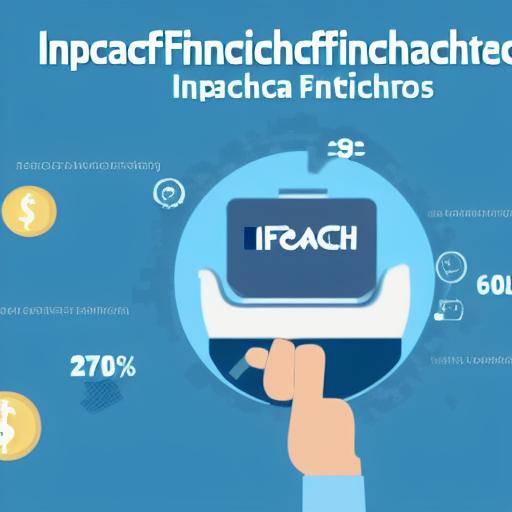
In the digital era, technology is revolutionizing all aspects of our lives, and the financial sector is no exception. The emergence of financial technologies, known as Fintech, is transforming the way financial advice is provided, making it more automated, accessible and technological than ever. In this article, we will explore the impact of automation, accessibility and technology on financial advice, as well as its implications and future prospects.
Automation: Redefining the Financial Advisory
The advance of technology has allowed the development of tools and platforms that automate complex financial processes. The automation of the financial advice has made tasks such as portfolio management, financial planning and fiscal advice more efficient and accurate. The algorithms and artificial intelligence are being used in financial decision-making, optimizing risk management and offering personalized recommendations to customers.
The Impact of Automation on the Financial Advisory
Automation has not only simplified and streamlined processes, but has also allowed more people to access high-quality financial advisory services. The reduction of costs associated with automation has made these services more accessible to a wider audience, democratizing access to financial education and heritage planning.
Case studies
- Robo-Advisors: The emergence of the "Robo-Advisors" has revolutionized the way people invest, offering automated financial advice through efficient algorithms and portfolio models.
- Automation of Financial Planning: The automation of financial planning has enabled advisers to focus on offering more personalized advice, while administrative tasks are handled efficiently.
The Future of Automation in the Financial Advisory
The exponential growth of automation in financial advice points to a future where financial decision-making is increasingly supported by data and algorithms, but not replaced by them. Human interpretation and flexibility capabilities will be supported in automation to provide more robust and personalized financial services.
Accessibility: Expanding the scope of the Financial Advisory
Accessibility has been one of the biggest changes that Fintech has brought with it to the financial advisory. Access to financial services is no longer limited by physical or economic barriers, as digital platforms have expanded the scope of financial advice to a much wider spectrum of the population.
Democratization of Financial Advice
Thanks to improved accessibility, people who may have previously been excluded from financial advice can now access a wider range of services to manage their personal finances. This not only promotes greater financial inclusion, but also helps to educate a wider population about the importance of long-term financial planning.
Case studies
- Digital Banking: Mobile applications and online platforms offer users instant access to their financial accounts and allow them to perform transactions at any time and place.
- Financial education: Fintech platforms are providing educational tools that help users understand better financial concepts and make informed decisions.
Next Steps in Financial Accessibility
As technology continues to advance, accessibility will remain a key pillar of financial advice. With initiatives such as mobile banking and the inclusion of financial services in rural and remote areas, financial advice is expected to be even more accessible and equitable in the future.
Technology: The Advances Moldean Financial Advisory
The technology has been the engine behind the transformation into financial advice, allowing the creation of innovative tools that change the way we interact with our finances. Mobile applications, artificial intelligence and blockchain are just some of the technologies that are shaping the new era of financial advice.
Technological Innovations in the Financial Advisory
The implementation of disruptive technologies in financial advice has completely redefined the way in which customer services are provided. Process digitization and the incorporation of predictive analysis have enabled advisers to deliver faster and more effective solutions to their clients, while improving transparency and security in financial transactions.
Case studies
- Blockchain in Financial Services: Blockchain technology has revolutionized security and transparency in financial transactions, eliminating intermediaries and reducing operating costs.
- Artificial Intelligence and Data Analysis: The application of advanced algorithms and data analysis has allowed to offer highly customized financial recommendations adapted to the individual needs of customers.
The Role of Technology in the Future Financial Advisory
With continued advances in technologies such as automatic learning, virtual reality and quantum computing, the future of financial advice is expected to be further influenced by technological innovation. Personalization and optimization of financial processes through sophisticated technological tools promise a more efficient and customer-centred advice.
Conclusions and Perspectives Futures in the Financial Advisory
The evolution of financial advice through automation, accessibility and technology is transforming the way we interact with our personal and business finances. The democratization of access to financial services, process automation and the use of advanced technologies are paving the way for more efficient, inclusive and tailored financial advice.
Frequently asked questions
**What benefits does automation offer in the financial consultancy?**Automation improves efficiency, reduces errors and provides personalized services to a greater number of people at lower costs.
**How is accessibility impacting financial advice?**Accessibility is expanding the scope of financial advice, allowing greater access to financial services and financial education.
**What are some examples of disruptive technologies in financial advice?**Blockchain, artificial intelligence and mobile applications are examples of technologies that are transforming financial advice.
**What is the role of personalization in the financial advice of the future?**Personalization will play a key role, allowing financial services to be tailored specifically to the individual needs and objectives of customers.
**How can financial advice use technology to improve transparency and transaction security?**Technology such as blockchain can improve security and transparency by eliminating intermediaries and establishing a permanent record of transactions.
**What are some future trends that will impact financial advice?**Trends include growing use of artificial intelligence, big data analysis and advances in financial mobility.
In conclusion, the combination of automation, accessibility and technology is transforming financial advice into a more inclusive, efficient and customer-oriented sector. With the continuous advancement of Fintech technology, the future of financial advice promises to be even more exciting and transformative.






















































